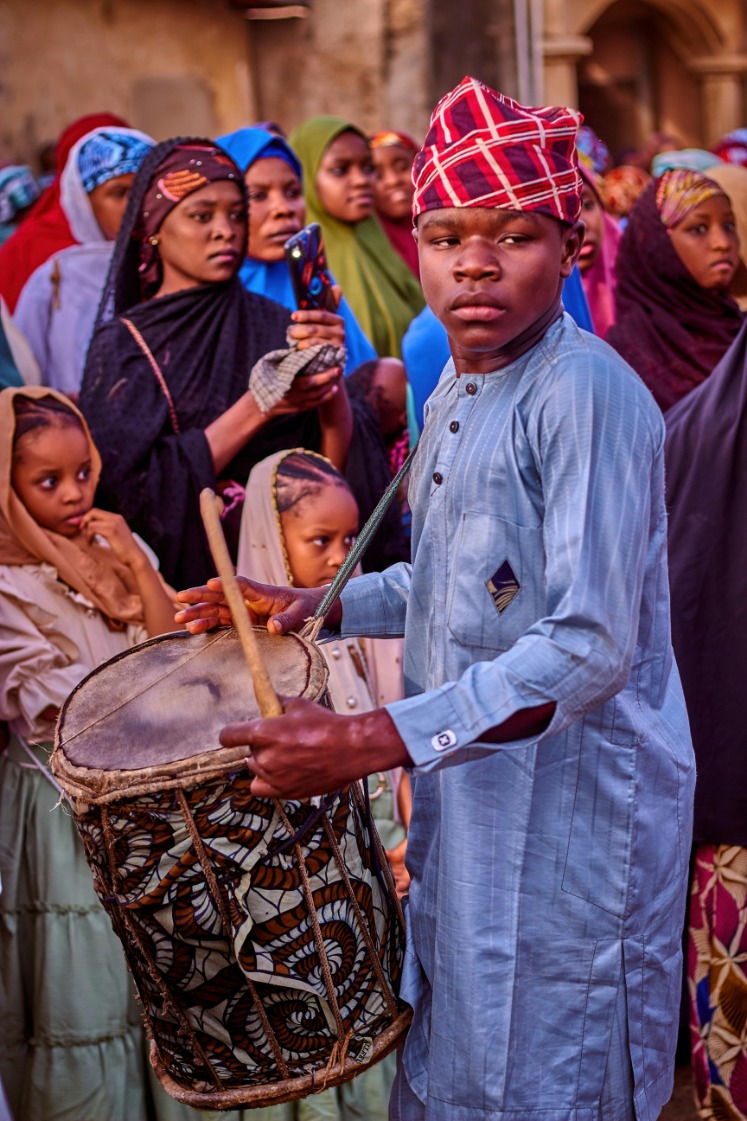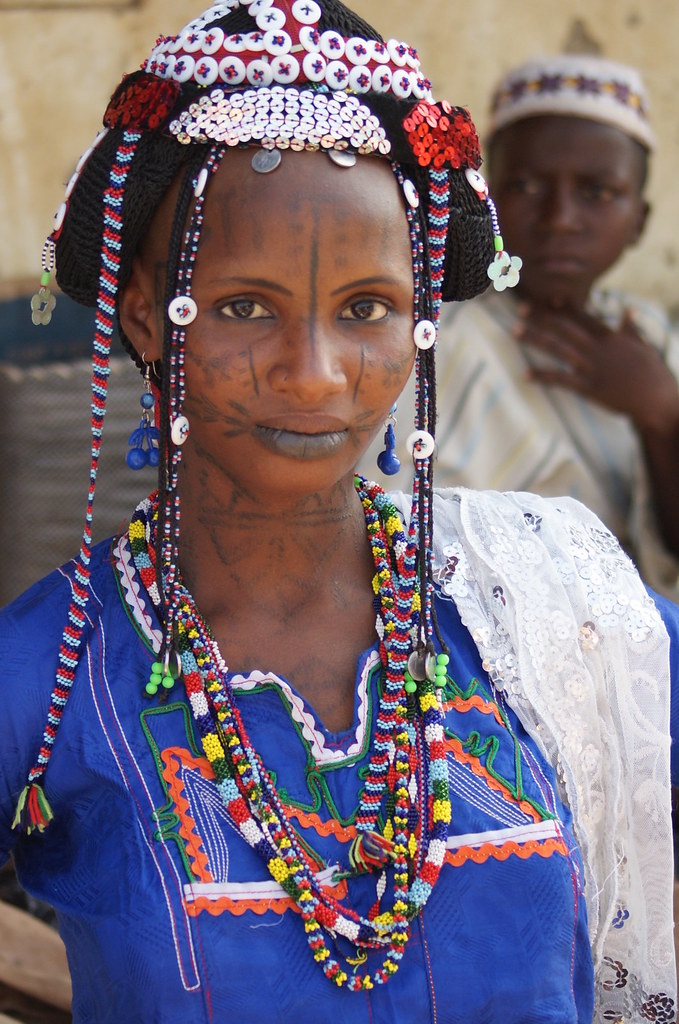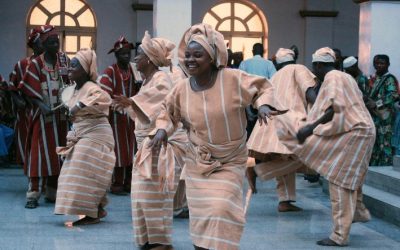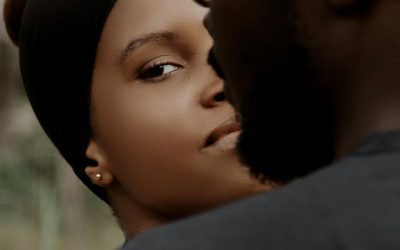Traditional Nigerian Clothing Styles
Traditional Nigerian clothing reflects the rich cultural heritage and diversity of the country’s numerous ethnic groups. These attire styles are often vibrant, intricate, and symbolic, showcasing unique craftsmanship and history. From elaborate local fabrics to distinctive accessories, Nigerian traditional clothing plays a significant role in expressing identity, social status, and cultural pride across Nigeria.
Agbada
Traditional Nigerian clothing styles reflect the rich cultural heritage and diversity of the country. Among these, the Agbada stands out as a prominent and elegant attire often worn by men during special occasions, ceremonies, and celebrations.
- The Agbada is a large, flowing robe distinguished by its intricate embroidery and lavish fabric, typically made from cotton, silk, or brocade.
- It is usually worn with a matching pair of trousers called “soko” and a long sleeve shirt underneath.
- Complemented with a cap known as “Fila” or a traditional hat called “Hausa” cap, completing the regal look.
- The Agbada symbolizes status, prestige, and cultural identity among various Nigerian ethnic groups, especially the Yoruba, Hausa, and Igbo communities.
- Colors and embroidery patterns on Agbada vary, often indicating social status, age, or specific ceremonial significance.
Buba and Sokoto
Traditional Nigerian clothing styles are deeply rooted in the country’s rich cultural heritage and diverse ethnic groups. Among these, the Buba and Sokoto are popular traditional garments worn by men and women across various regions of Nigeria. The Buba is a loose-fitting blouse that is often elaborately embroidered or decorated with colorful patterns, symbolizing cultural identity and social status. The Sokoto is a lightweight, flowing trouser that complements the Buba, offering comfort and style for everyday wear or special occasions. Together, Buba and Sokoto are typically made from vibrant fabrics such as Ankara, brocade, or lace, reflecting Nigeria’s love for bright colors and intricate designs. These traditional outfits are often combined with accessories like beaded jewelry, head wraps, and cap styles, enhancing their cultural significance and aesthetic appeal. Overall, Buba and Sokoto remain a proud representation of Nigerian fashion and cultural expression, celebrated during festivals, weddings, and other important ceremonies.
Isiagu
Traditional Nigerian clothing styles are rich in history and culture, showcasing the diversity of the country’s various ethnic groups. One of the most iconic traditional outfits is the Isiagu, which is predominantly associated with the Igbo people. The Isiagu is a distinctive shirt made from richly embroidered fabric, often adorned with elaborate patterns and designs. It is typically worn during important ceremonies, festivals, and special occasions, symbolizing wealth, status, and cultural pride. The attire is usually paired with traditional trousers, beads, and other accessories that complete the look. The Isiagu not only reflects Nigeria’s vibrant cultural heritage but also serves as a symbol of identity and tradition for the Igbo community.
George
Traditional Nigerian clothing styles are vibrant, diverse, and rich in cultural significance. Each region in Nigeria has its unique attire that reflects its history and identity. For example, the Yoruba people often wear the ornate Agbada, a flowing robe complemented by a cap called a fila. The Igbo traditionally wear the richly embroidered isiagu shirt, paired with wrappers and beads, symbolizing status and heritage. The Hausa-Fulani communities are known for their elegant babban riga or kaftans, often made from luxurious fabrics like brocade or damask, and accessorized with embroidery and hats. These clothing styles are typically made from colorful fabrics such as Ankara, Aso Ebi, and and often feature intricate embroidery, beadwork, and other embellishments. Nigerian traditional clothing is not only worn for daily purposes but also during special occasions, festivals, weddings, and cultural celebrations, showcasing the country’s vibrant cultural diversity and history.
Modern Nigerian Fashion Trends
Modern Nigerian fashion trends beautifully blend traditional cultural elements with contemporary styles, creating a vibrant and innovative wardrobe palette. Nigerian designs are celebrated for their bold colors, intricate patterns, and unique craftsmanship that reflect the country’s rich heritage. As fashion continues to evolve, Nigerian designers are gaining international recognition for their creativity and ability to seamlessly fuse tradition with modernity.
Contemporary Nigerian Designers
Modern Nigerian fashion trends showcase a vibrant blend of traditional aesthetics and contemporary styles, reflecting the country’s rich cultural diversity. Contemporary Nigerian designers are at the forefront of this movement, s creating innovative clothing that celebrates heritage while embracing global fashion influences.
- Otto Firmansyah – Known for mixing vibrant prints with modern tailoring, Otto continues to influence Nigerian fashion with his bold designs.
- Maki Oh – Famous for integrating traditional Nigerian textiles with avant-garde fashion concepts, Maki Oh has gained international acclaim.
- Deola Sagoe – Recognized for luxurious and intricate designs that fuse Yoruba aesthetics with contemporary fashion, Deola Sagoe remains a pioneer.
- Lisa Folawiyo – Innovating with jewel-toned fabrics and embellishments, Lisa Folawiyo’s designs are a staple of modern Nigerian fashion.
- Tsemaye Banton – Known for minimalistic yet distinctive styles, Tsemaye Banton combines Nigerian fabrics with sleek silhouettes.
Western Influence on Nigerian Clothing
Modern Nigerian fashion trends beautifully blend traditional styles with contemporary western influences, creating a vibrant and dynamic sartorial scene. Nigerian designers are increasingly incorporating Western-inspired elements such as denim, streetwear, and minimalist aesthetics into their collections, while still celebrating local fabrics and craftsmanship. This fusion results in unique clothing that appeals to both local and global audiences, showcasing Nigeria’s rich cultural heritage alongside modern fashion sensibilities.
- Incorporation of Western streetwear styles like sneakers, hoodies, and caps into traditional Nigerian outfits.
- Use of Western fabrics such as denim and leather combined with indigenous textiles like Ankara and Aso Obi.
- Designers drawing inspiration from Western fashion icons and runway trends to modernize traditional garments.
- Emergence of fusion wear that seamlessly blends Western casualwear with Nigerian cultural attire.
- Increased popularity of fashion events and brands that promote this cross-cultural style evolution.
Urban Nigerian Fashion Scenes
Modern Nigerian fashion trends are characterized by a vibrant blend of traditional patterns and contemporary styles, reflecting the country’s rich cultural heritage and dynamic urban influence. Nigerian designers are gaining international recognition for their innovative designs that incorporate bold colors, intricate embroidery, and unique fabrics such as Ankara, Aso Ebi, and adire. These elements are seamlessly integrated into modern clothing, creating a distinctive aesthetic that appeals to both local and global audiences.
Urban Nigerian fashion scenes are thriving hubs of creativity and self-expression, with Lagos and Abuja leading the way. Streetwear and casual chic styles dominate the city landscapes, showcasing a mix of designer labels and street-inspired looks. Lagos, in particular, is renowned for its fashion weeks, pop-up shops, and vibrant markets where young designers showcase their latest collections. Influences from hip-hop, Afrobeat culture, and social media trends continuously shape the evolving fashion landscape, making Nigerian urban fashion a exciting arena of innovation and cultural pride.
Materials and Fabrics Used in Nigerian Clothing
Nigerian clothing is renowned for its vibrant colors, intricate patterns, and rich textures, reflecting the country’s diverse cultural heritage. The materials and fabrics used play a crucial role in showcasing traditional craftsmanship and modern influences. From luxurious textiles to everyday wear, Nigerian garments incorporate a variety of fabrics that symbolize history, status, and identity.
Wax Prints (Ankara)
Nigerian clothing is renowned for its vibrant colors and rich textures, with materials and fabrics playing a central role in traditional and contemporary styles. Wax prints, commonly known as Ankara, are one of the most iconic fabrics used in Nigerian attire. Made from 100% cotton, Ankara fabric is known for its bold, intricate patterns and bright colors that symbolize cultural identity and artistic expression. The fabric is both versatile and durable, making it suitable for a variety of clothing styles, from elaborate gowns to casual wear. In addition to Ankara, other popular fabrics include Aso Oke, a hand-woven cloth with metallic thread accents, and lace materials that add elegance to formal garments. Together, these fabrics reflect Nigeria’s rich textile heritage and artistic diversity, showcasing the country’s cultural pride through fashion.
Lace Fabric
Nigerian clothing is renowned for its vibrant materials and exquisite fabrics, which reflect the rich cultural heritage of the country. Among the most iconic fabrics used in Nigerian attire is lace fabric, celebrated for its intricate designs and elegant texture. Nigerian lace is typically made from cotton, nylon, or polyester, and often features elaborate embroidered patterns that add to its luxurious appearance. This fabric is favored for special occasions such as weddings, traditional ceremonies, and festive celebrations due to its regal look. Additionally, Nigerian lace comes in various styles, including Swiss lace, French lace, and Guipure lace, each offering unique patterns and textures. The versatility and beauty of lace fabric make it a staple in Nigerian fashion, symbolizing sophistication, craftsmanship, and cultural pride.
Kente and Brocade

Nigerian clothing is renowned for its vibrant colors, rich textures, and intricate designs, with materials and fabrics playing a vital role in representing cultural identity and heritage. Kente, although originally from Ghana, has influenced Nigerian textile arts, characterized by its bright, geometric patterns and often woven from silk or cotton. Brocade is a luxurious fabric widely used in Nigerian traditional attire, made from silk, damask, or jacquard, and features elaborate patterns often embroidered or woven into the fabric itself. Other popular materials include Ankara, a boldly printed cotton fabric, and Aso Oke, a hand-woven fabric crafted from silk, cotton, or a blend, traditionally used for special occasions. These fabrics are often decorated with embroidery, beadwork, and other embellishments to enhance their visual appeal. Nigerian clothing fabrics reflect both the aesthetic sensibilities and the social significance embedded in clothing, capturing the nation’s vibrant cultural diversity and artisanal craftsmanship.
Indigo and Cotton
Nigerian clothing is renowned for its vibrant fabrics and rich cultural significance. Materials such as cotton and indigo play a vital role in the creation of traditional and modern garments. Cotton, being a versatile and breathable fabric, is widely used in making many Nigerian attires, ensuring comfort in hot climates.
Indigo, a natural dye derived from the indigo plant, is especially famous for its deep blue hue that is often employed in the production of fabrics like adire and other textile patterns. These materials are deeply embedded in Nigerian culture, symbolizing identity, craftsmanship, and artistic expression. The combination of cotton and indigo in Nigerian clothing highlights the country’s textile heritage, blending tradition with contemporary fashion trends.
Accessories and Embellishments
Accessories and embellishments play a vital role in Nigerian fashion, adding unique flair and personal expression to traditional and modern clothing. They serve not only as decorative elements but also as symbols of cultural identity and social status. From intricate beadwork to vibrant jewelry, these adornments enhance the beauty and significance of Nigerian garments, making each outfit a statement of heritage and style.
Beaded Jewelry
Beaded jewelry is an essential element of Nigerian fashion, adding vibrant and intricate details to traditional and contemporary clothing. These accessories often feature colorful beads, shells, and other embellishments that symbolize cultural heritage and personal identity. Beaded necklaces, bracelets, and earrings are commonly worn during special occasions, celebrations, and ceremonies, reflecting the rich craftsmanship passed down through generations. Incorporating beaded jewelry into Nigerian attire enhances the overall aesthetic, showcasing bold colors and elaborate designs that celebrate the nation’s diverse cultural expressions.
Headgear (Gele, Fila)
In Nigerian fashion, accessories and embellishments play a vital role in enhancing traditional and modern outfits. Headgear such as Gele and Fila are iconic elements that showcase cultural identity and personal style, often completing ensembles for special occasions and everyday wear.
- Gele: A traditional Nigerian headwrap primarily worn by women, especially during weddings, festivities, and important ceremonies. Gele styles vary from simple to elaborate designs, often made from stiff fabrics like aso-oke or damask that hold intricate folds and embellishments.
- Fila: A popular Nigerian cap worn mainly by men, typically part of traditional attire such as Agbada or Yoruba styles. Fila styles range from rounded caps to more structured designs, often decorated with embroidery or beads for added flair.
- Accessories such as beads, brooches, and pins are frequently used to adorn Gele and Fila, adding color, texture, and cultural symbolism.
- These headgears are not only fashion statements but also represent cultural heritage, social status, and personal identity among Nigerians.
Shells and Beads Embellishments
Accessories and embellishments play a vital role in Nigerian fashion, adding uniqueness and cultural significance to clothing. Shells and beads are traditional embellishments that are often incorporated into garments and accessories, symbolizing heritage and social status.
- Shells are commonly used in Nigerian accessories, especially in coastal regions, where cowrie shells symbolize wealth and spirituality. They are sewn onto clothing, jewelry, and hairpieces to enhance beauty and convey cultural identity.
- Beads are central to Nigerian adornment, often crafted into necklaces, bracelets, and headpieces. Different colors and sizes of beads carry specific meanings and are used to mark rites of passage, festivals, or status within communities.
- Traditional attire such as gele, coral beads, and beaded necklaces are essential components in events like weddings and celebrations, showcasing craftsmanship and cultural pride.
- Modern Nigerian designers often combine traditional shell and bead embellishments with contemporary fashion to create vibrant, culturally rich clothing lines.
- The use of shells and beads not only beautifies garments but also preserves age-old traditions, passing cultural stories and values through generations.
Cultural Significance and Occasions
Clothing in Nigeria holds deep cultural significance, representing various ethnic identities, social statuses, and traditional customs. Special occasions such as weddings, festivals, and ceremonies are marked by vibrant and intricate attire that reflects the rich heritage and artistic expression of Nigerian communities. These garments not only serve as a form of personal and cultural identity but also play a vital role in celebrating unity and continuity within Nigerian society.
Traditional Ceremonies
Clothes from Nigeria hold deep cultural significance and are often reserved for important occasions and traditional ceremonies. They serve as a reflection of identity, history, and social status within Nigerian society. These garments are more than just clothing; they are symbols of heritage and pride, worn with dignity during celebrations and rites of passage.
- Weddings and Engagements: Nigerian wedding attire features ornate fabrics like Aso Ebi and Aso Oke, often beautifully embroidered and embellished to signify unity and prosperity.
- Traditional Festivals: During festivals such as the Argungu Fishing Festival or the Osun-Osogbo Festival, vibrant clothing made of patterned fabrics like Ankara and Adire is worn to celebrate cultural heritage.
- Rites of Passage: Clothing styles like Isi Agu for men and Gele for women are donned during ceremonies marking milestones such as naming ceremonies, graduations, or coming-of-age events.
- Religious Ceremonies: Attire for church services or Islamic celebrations often feature modest and elegant designs, reflecting spiritual reverence and community identity.
Festivals and Celebrations
Nigerian traditional clothing holds deep cultural significance and is often worn to mark important occasions, festivals, and celebrations. These garments reflect the rich heritage, history, and identity of various ethnic groups within Nigeria, such as the Yoruba, Igbo, and Hausa. During festivals like the Argungu Fishing Festival, the Osun-Osogbo Festival, or the New Yam Festival, vibrant traditional attire is showcased to honor customs and express community pride. Weddings, naming ceremonies, and religious events are also characterized by the wearing of elaborate clothes, often adorned with intricate embroidery, beads, and symbolic accessories. These occasions serve as perfect opportunities to celebrate Nigerian culture, uniting people through clothing that signifies tradition, status, and cultural pride.
Weddings and Social Gatherings
Clothes from Nigeria hold a profound cultural significance, especially during weddings and social gatherings, where they serve as expressions of identity, heritage, and social status. Traditional garments such as the agbada, gele, and ipele are often worn to celebrate important occasions, symbolizing respect and cultural pride. These outfits are rich in vibrant colors, intricate embroidery, and unique designs that reflect Nigeria’s diverse ethnic groups.
During weddings, Nigerian clothes play a pivotal role in conveying the importance of the event and honoring customs. Brides typically wear elaborate gele headpieces and beautifully patterned dresses, showcasing craftsmanship passed down through generations. Grooms and guests also dress in traditional attire, creating a stunning visual display that emphasizes unity and cultural heritage.
Social gatherings, festivals, and ceremonies are occasions for Nigerians to showcase their traditional clothing, fostering a sense of community and continuity. These garments not only celebrate Nigeria’s colorful history but also serve as a means to preserve and promote cultural identity amid a rapidly changing world. Overall, Nigerian clothing for such occasions is a vibrant testament to the country’s rich and enduring cultural legacy.
Impact of Nigerian Clothing on Global Fashion
Nigerian clothing has significantly influenced global fashion by showcasing vibrant colors, intricate patterns, and unique craftsmanship that highlight the rich cultural heritage of Nigeria. These traditional and modern styles have gained international recognition, inspiring designers worldwide and contributing to the diverse landscape of contemporary fashion. The impact of Nigerian attire continues to grow, blending tradition with innovation to create a lasting impression on global trends.
Representation in International Runways
Nigerian clothing has significantly influenced global fashion by bringing vibrant colors, intricate patterns, and traditional craftsmanship to an international audience. Designers inspired by Nigerian textiles, such as Ankara, Aso Ebi, and Agbada, incorporate these elements into contemporary fashion, creating a unique fusion of cultural identity and modern style. This cultural representation on the global stage enhances visibility for Nigerian heritage and fosters greater appreciation of African fashion traditions.
In recent years, Nigerian designers have gained prominence on international runways, showcasing their innovative designs at major fashion weeks in Paris, New York, and London. Their presence helps diversify the fashion industry and challenges traditional Western-centric standards, emphasizing the beauty and richness of African culture. By featuring Nigerian attire on international runways, these designers promote cultural pride, encourage cross-cultural exchanges, and open doors for more African representation in global fashion narratives.
Collaborations with Global Brands
Nigerian clothing has significantly influenced global fashion by showcasing rich cultural heritage and vibrant aesthetics. Designers from Nigeria have gained international recognition, bringing traditional fabrics like Ankara, Adire, and Aso Ebi to the forefront of modern fashion trends. This fusion of African heritage with contemporary styles has inspired numerous global brands to incorporate Nigerian elements into their collections, fostering a multicultural dialogue within the fashion industry. Collaborations between Nigerian designers and major international brands have further amplified this impact, promoting diversity and innovation across the global fashion scene.
- Increased recognition of African textiles and craftsmanship worldwide.
- Integration of authentic Nigerian patterns and fabrics into mainstream fashion lines.
- High-profile collaborations that elevate Nigerian designers on the global stage.
- Promotion of cultural identity and heritage through modern fashion platforms.
- Encouragement of sustainable and locally sourced fashion initiatives rooted in Nigerian traditions.
Promotion of Nigerian Heritage Worldwide
Nigerian clothing has significantly influenced global fashion by introducing vibrant designs, intricate patterns, and unique textiles that capture the rich cultural heritage of Nigeria. These traditional and contemporary styles have gained international recognition, inspiring designers worldwide and blending cultural elements into mainstream fashion. The global appeal of Nigerian clothing promotes greater awareness and appreciation of Nigeria’s diverse cultural identity.
- Showcasing Nigeria’s rich cultural heritage through distinctive fabrics like Ankara, Aso Ebi, and Adire.
- Influencing international fashion with bold patterns, bright colors, and innovative styles.
- Creating opportunities for Nigerian designers to gain global recognition and collaborate with international brands.
- Encouraging cultural exchange and understanding through fashion shows, exhibitions, and media coverage.
As Nigerian fashion continues to gain popularity, it further promotes Nigerian heritage worldwide, fostering a sense of pride and cultural preservation while inspiring a global appreciation for African aesthetics and craftsmanship.





0 Comments